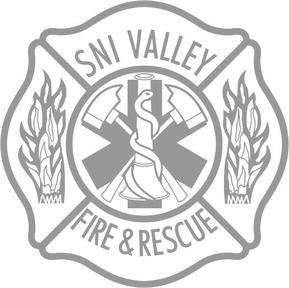CPR Training & Classes
Sni Valley offers both live instruction or skills checkoff for the online courses listed below. Below is a fee schedule for both modes of instruction/certification and a hyperlink to the online courses. For further questions and scheduling please call 816-690-6990. For large group scheduling, please contact Captain John Follis through email (due to a large number of spam email, email for Captain John Follis is his lastname@snivalleyfire.org). Classes can be paid in person at Sni Valley Station 1 via check.
BLS Online Certification
BLS Live Instruction Class at Station 1
First-Aid Online Certification
First-Aid Live Instruction Class at Station 1
- BLS Online class is $28.50.
- BLS Checkoff at Sni Valley Station 1 is $35.00.
- https://shopcpr.heart.org/heartcode-bls
BLS Live Instruction Class at Station 1
- BLS Class is $50.00 without the book and $65.00 with the book.
- Class must be prepaid.
- Minimum of 4 students with a max of 18 with adequate notice.
- Classes 30 days prior to the scheduled date may cancel and receive a full refund if the minimum number of students is not met.
First-Aid Online Certification
- First-Aid Online class is $20.00
- First-Aid Checkoff at Sni Valley Station 1 is $55.00.
- https://shopcpr.heart.org/heartsaver-first-aid-online
First-Aid Live Instruction Class at Station 1
- First-Aid class is $75.00 without the book and $85.00 with the book.
- Class must be prepaid.
- Minimum of 4 students with a max of 18 with adequate notice.
- Classes 30 days prior to the scheduled date may cancel and receive a full refund if the minimum number of students is not met.
Anybody can and anybody should learn how to perform CPR (Cardiopulmonary resuscitation): According to the AHA (American Heart Association), a stunning 70% of Americans don’t know how or what to do if somebody is experiencing a cardiac emergency because they don’t know how to administer CPR or they forgot the exact technique. This is especially alarming since almost 90% of cardiac arrests occur at home, knowing how to perform CPR can save the life of a loved one someday.
It's far better to do something than to do nothing at all if you're fearful that your knowledge or abilities aren't 100 percent complete. Remember, the difference between you doing something and doing nothing could be someone's life.
Here's advice from the American Heart Association:
It's far better to do something than to do nothing at all if you're fearful that your knowledge or abilities aren't 100 percent complete. Remember, the difference between you doing something and doing nothing could be someone's life.
Here's advice from the American Heart Association:
- Untrained. If you're not trained in CPR, then provide hands-only CPR. That means uninterrupted chest compressions of about 100 a minute until paramedics arrive. You don't need to do rescue breathing.
- Trained and ready to go. If you're well-trained and confident in your ability, begin with chest compressions instead of first checking the airway and doing rescue breathing. Start CPR with 30 chest compressions before checking the airway and giving rescue breaths.
- Trained but rusty. If you've previously received CPR training but you're not confident in your abilities, then just do chest compressions at a rate of about 100 a minute.
The above advice applies to adults, children and infants needing CPR, but not newborns.
CPR can keep oxygenated blood flowing to the brain and other vital organs until more definitive medical treatment can restore a normal heart rhythm.
When the heart stops, the lack of oxygenated blood can cause brain damage in only a few minutes. A person may die within eight to 10 minutes.
To learn CPR properly, take an AHA CPR course that includes the use of an automated external defibrillator (AED) through Sni Valley Fire Protection District. Call us at (816-690-6990) and find the next scheduled class for you to learn CPR!
Back to Community Risk Reduction Main Page
|
Copyright ©2006 -
Sni Valley Fire Protection District
|
|

